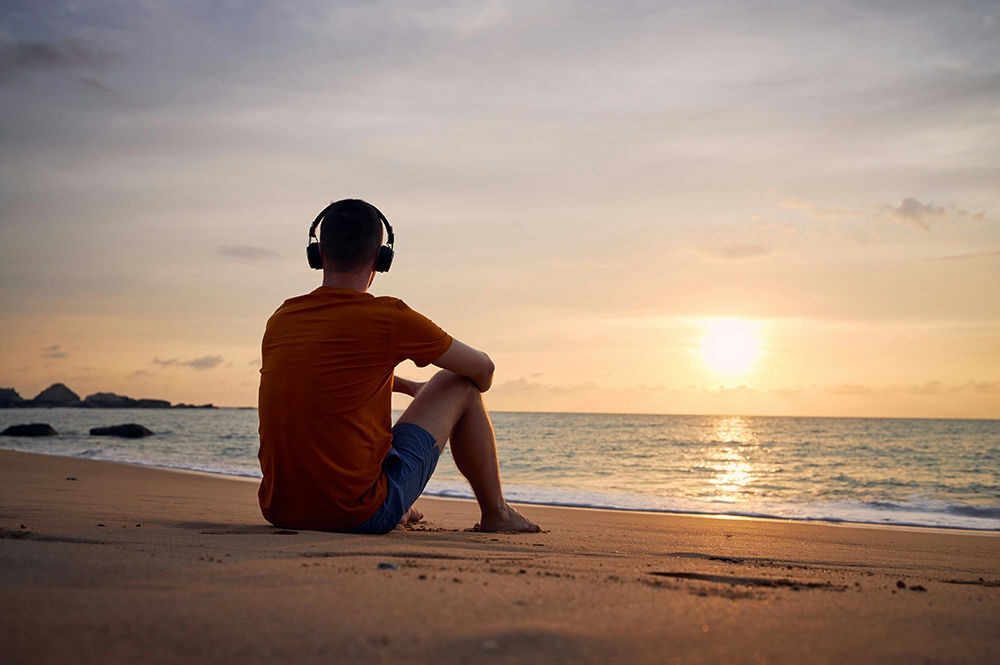Sober travel can be rewarding, offering new experiences without compromising your recovery. Staying committed involves planning, mindfulness, and support. Agape Detox Center emphasizes creating strategies for navigating challenges on the road, ensuring sobriety remains your priority. With preparation, you can explore the world while maintaining a healthier lifestyle.
What Is Sober Travel and Why Is It Important?
Sober travel is exploring new destinations and experiences while maintaining a commitment to sobriety. It involves careful planning and intentional decision-making to avoid triggers and create a supportive environment for recovery. For those in recovery, traveling can present unique challenges, such as encountering situations where substances are prevalent.
The importance of sober travel lies in its ability to help individuals in recovery maintain their progress while enjoying the freedom and excitement of exploration. By prioritizing sobriety, travelers can build confidence, develop healthy coping mechanisms, and create meaningful memories without relying on substances.
The Benefits of Traveling Sober
Traveling sober offers a range of benefits that enhance both personal growth and recovery. Without the haze of substances, you can fully engage with your surroundings, experience cultures authentically, and create lasting memories. Sober travel also encourages mindfulness, helping you stay present and appreciate each moment.
It supports mental clarity, allowing you to make better decisions and prioritize self-care while navigating new environments. Additionally, sober travel fosters deeper connections with others and yourself, as it encourages meaningful interactions and introspection. For those in recovery, it demonstrates that you can enjoy life’s adventures without substances. Ultimately, traveling sober reinforces your commitment to a healthier lifestyle while broadening your horizons in a positive, substance-free way.
How to Plan a Sober-Friendly Trip?
1. Select a Destination
Opt for places with substance-free or wellness-focused options.
2. Travel with Support
Invite sober companions or connect with recovery groups at your destination.
3. Plan Activities
Include structured and engaging experiences like outdoor adventures, cultural visits, or creative classes.
4. Research Accommodations
Choose lodging that aligns with your recovery goals, such as sober-friendly hotels or retreats.
5. Pack Thoughtfully
Bring items like recovery literature, a journal, or stress-relief tools to stay grounded.
6. Stay Connected
Keep in touch with your sponsor or trusted support network.
7. Prepare for Challenges
Have strategies for managing triggers or cravings, such as relaxation techniques or a crisis contact plan.
8. Prioritize Self-Care
Focus on healthy eating, rest, and mindfulness to stay balanced and present.
Finding Sober Activities and Destinations

Discovering sober activities and destinations can transform your travel experience into a fulfilling and recovery-focused journey. Look for destinations that emphasize wellness, such as beachside retreats, national parks, or cities with vibrant art and culture scenes. These locations offer opportunities for relaxation, outdoor adventures, and personal growth without exposure to substances.
Engage in sober-friendly activities like hiking, yoga, guided tours, or creative workshops to stay active and present. Seek out recovery-focused events or meetups to connect with like-minded individuals during your travels. Many cities also host sober cafés, fitness studios, or mindfulness classes, providing additional ways to explore without compromising sobriety. Tips for Avoiding Triggers While Traveling
- Research Your Destination: Identify areas or activities that could pose risks, such as nightlife-heavy zones.
- Choose Sober-Friendly Accommodations: Stay in environments that support your recovery, like wellness retreats or quiet lodgings.
- Plan Structured Activities: Engage in hikes, tours, or wellness classes to stay focused and active.
- Stick to a Routine: Include journaling, meditation, or exercise to maintain stability.
- Pack Recovery Tools: Bring contact info for support groups, recovery literature, or stress relief items.
- Avoid Risky Situations: Steer clear of events or places that might expose you to substances.
- Have an Exit Strategy: Prepare to leave uncomfortable situations quickly if triggers arise.
- Travel with Support: Bring sober companions or connect with local recovery groups.
Packing Essentials for Sober Travel Success
1. Recovery Materials
Bring books, journals, or apps that support your sobriety.
2. Support Contacts
Keep phone numbers for sponsors, accountability partners, or local recovery groups.
3. Healthy Snacks
Pack nourishing options to maintain energy and avoid stress eating.
4. Hydration Essentials
Carry a reusable water bottle to stay hydrated.
5. Comfort Items
Include items like a travel pillow, blanket, or favorite memento for emotional grounding.
6. Relaxation Tools
Bring headphones for music or meditation apps to reduce stress.
7. Emergency Plan
Have a list of nearby sober resources at your destination.
8. Activity Supplies
Pack gear for planned activities, such as hiking boots or yoga mats, to stay engaged and focused.
9. Self-Care Items
Include skincare, hygiene, and wellness products to promote overall well-being.
How to Navigate Social Situations Without Alcohol
Navigating social situations without alcohol requires confidence, preparation, and a clear sense of your recovery goals. Before attending events, decide how you’ll handle questions about your sobriety—having a simple response ready can reduce awkwardness. Opt for non-alcoholic drinks to fit in while avoiding temptation.
Focus on engaging in meaningful conversations and activities, rather than fixating on what others are drinking. Stay close to individuals who honor and support your choice to remain sober.
If you feel uncomfortable, don’t hesitate to step away or leave early.
Practice mindfulness techniques to manage any urges, and remind yourself why sobriety is important. Ultimately, by staying true to your commitment and setting boundaries, you can enjoy social situations without alcohol while maintaining your well-being.
Staying Accountable During Your Trip
To stay accountable during your trip, establish clear boundaries and set personal goals ahead of time. Check in regularly with a trusted person to share updates and discuss any challenges you may face. Consider using a journal or app to track your progress, which can help you stay focused.
Surround yourself with supportive people who respect your sobriety and encourage your goals. If you’re feeling tempted, reach out for support or take a break to regain composure. Staying mindful of your commitment and being honest with yourself about your feelings and needs will help you stay on track. Whether it’s a quick check-in or a thoughtful moment of reflection, accountability is paramount for maintaining sobriety while traveling.
Building a Support Network for Sober Travel
Building a support network for sober travel involves connecting with individuals who understand your commitment to sobriety and can offer encouragement when needed. Start by identifying trusted people, such as friends, family, or sponsors, who can check in with you during your trip.
You can also reach out to local recovery groups or sober communities at your destination to establish connections before you arrive. Use social media or recovery apps to find meetups or sober events.
During your travels, stay in contact with your support network through phone calls or messages, sharing experiences, and seeking advice. By surrounding yourself with positive influences and maintaining open communication, you’ll ensure that your sober travel journey is fulfilling and grounded in support.
Using Travel as a Way to Celebrate Your Sobriety

Traveling can be a powerful way to celebrate your sobriety by embracing new experiences and challenges without the need for substances. Use your trip as an opportunity to reflect on how far you’ve come and how your life has transformed. Choose destinations that offer personal growth, relaxation, or adventure, aligning your travel experiences with your recovery goals.
Celebrate your sobriety by setting meaningful intentions for your trip, such as exploring new cultures or trying new activities. Take time to appreciate the milestones you’ve achieved, whether big or small. Traveling sober highlights your strength and commitment, reinforcing the idea that a fulfilling, adventurous life is possible without substances.
Journaling Your Sober Travel Experience
Journaling your sober travel experience is a meaningful way to reflect on your journey and deepen your connection to recovery. Start by writing down your intentions before the trip, noting goals and any challenges you anticipate. During your travels, document your feelings, thoughts, and the milestones you encounter, whether they’re moments of personal growth or small victories.
Journaling helps process emotions, celebrate sobriety, and stay mindful of your progress. Write about how your experiences differ from past travels when substances were involved, highlighting the clarity and presence you feel now. Reflecting on your journey not only reinforces your commitment to sobriety but also creates a personal record of how travel can be a rewarding and sober experience.
Resources for Finding Sober Travel Groups and Communities
Finding sober travel groups and communities is easier with various online resources and organizations dedicated to supporting sobriety while traveling. Websites like Sober Vacations and Sober Travel Groups on social media offer opportunities to connect with like-minded individuals. Additionally, apps like I Am Sober or Meetup can help you find sober events, activities, and local support groups in your travel destination.
You can also check with recovery centers or wellness retreats that cater to sober travelers. These groups provide safe, structured environments and offer community-building opportunities. By seeking out sober travel communities, you’ll enhance your experience and ensure a supportive environment throughout your journey.
Contact us today for more information on connecting with sober travel groups and creating a supportive travel experience.

Stephanie Robilio is an accomplished Clinical Director at Agape Behavioral Healthcare. With a Master of Social Work degree, LCSW license, and extensive training in Rapid Resolution Therapy under her belt, she brings a wealth of expertise to her role. Her unique combination of education and experience allows her to provide exceptional care to clients and lead her team with confidence. Stephanie’s joy comes from witnessing the moments when her patients creatively connect the dots and bravely move toward reclaiming their power. Her purpose is to help individuals understand their past so they can create a future full of hope, growth, and success. Stephanie attributes a large portion of her success to the supportive culture and strong sense of community fostered by the Agape team.





